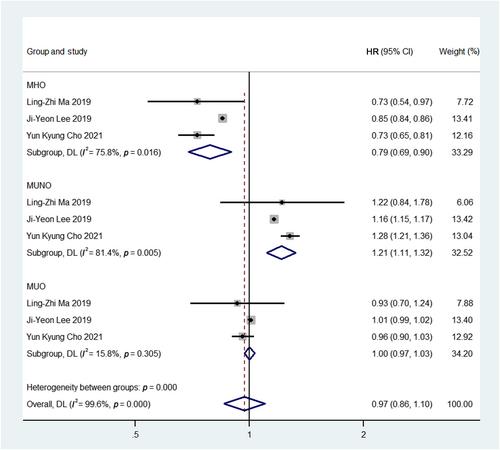Association between metabolically healthy obesity and risk of dementia: A systematic review and meta-analysis
Abstract
Background
Some studies suggest that the metabolic alterations linked to obesity in humans may increase the likelihood of developing dementia. However, there are currently no existing meta-analyses exploring the possible occurrence of dementia in patients with metabolically healthy obesity (MHO). In the present study, we aimed to investigate a potential correlation between individuals with MHO and the likelihood of developing dementia.
Method
Our research focused on searching three databases to locate pertinent studies starting from January 10, 2023. We used sensitivity analysis, the Egger's test, and a visual funnel plot to separately assess the reliability of the research results and publication bias. We conducted this study according to a pre-established protocol in the PROSPERO registry (CRD42023449459).
Results
We incorporated three potential cohort investigations. Individuals with good metabolic health and obesity showed a decreased likelihood of developing dementia compared with those who were metabolically healthy but not obese (hazard ratio (HR) = 0.79; 95% confidence interval (CI) 0.68–0.92). In contrast, individuals who were metabolically unhealthy and nonobese had an increased likelihood of developing dementia (HR = 1.33; 95% CI 1.25–1.42), whereas the population with metabolically unhealthy obesity did not exhibit a notable association with dementia onset (HR = 1.06; 95% CI 0.83–1.37).
Conclusion
According to our meta-analysis, patients with MHO had a reduced likelihood of developing general dementia and Alzheimer disease. Maintaining a well-functioning metabolism can provide advantages in reducing the occurrence of dementia.


 求助内容:
求助内容: 应助结果提醒方式:
应助结果提醒方式:


